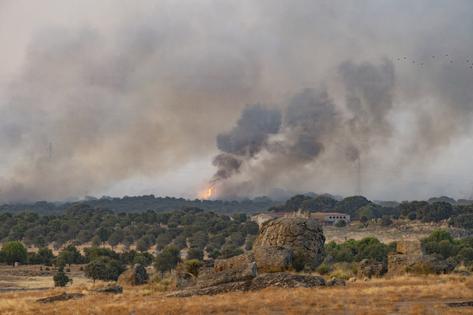Wildfires: How to cope when smoke affects air quality and health
Published in Health & Fitness
As wildfires become more frequent due to climate change and drier conditions, more of us and more of our communities are at risk for harm. Here is information to help you prepare and protect yourself and your family.
How does wildfire smoke affect air quality?
Wildfire smoke contributes greatly to poor air quality. Just like pollution from burning coal, oil, and gas, wildfires create hazardous gases and tiny particles of varying sizes that are harmful to breathe. Wildfire smoke also contains other toxins that come from burning buildings and chemical storage.
Smoke carried by weather patterns and jet streams can cross state and national boundaries, traveling to distant regions.
How does wildfire smoke affect our health?
The small particles in wildfire smoke –– known as particulate matter, or PM10, PM2.5, PM0.1 –– are the most worrisome to our health. When we breathe them in, these particles can travel deep into the lungs and sometimes into the bloodstream.
The health effects of wildfire smoke include eye and skin irritation, coughing, wheezing, and difficulty breathing. Other possible serious health effects include heart failure, heart attacks, and strokes.
Who needs to be especially careful?
Those most at risk from wildfire smoke include children, older adults, outdoor workers, and anyone who is pregnant or who has heart or lung conditions.
If you have a chronic health condition, talk to your doctor about how the smoke might affect you. Find out what symptoms should prompt medical attention or adjustment of your medications. This is especially important if you have lung problems or heart problems.
What can you do to prepare for wildfire emergencies?
If you live in an area threatened by wildfires, or where heat and dry conditions make them more likely to occur:
What steps can you take to lower health risks during poor air quality days?
These six tips can help you stay healthy during wildfire smoke advisories and at other times when air quality is poor:
(Wynne Armand, M.D., is a contributor to Harvard Health Publications.)
©2025 Harvard University. For terms of use, please see https://www.health.harvard.edu/terms-of-use. Distributed by Tribune Content Agency, LLC.










Comments